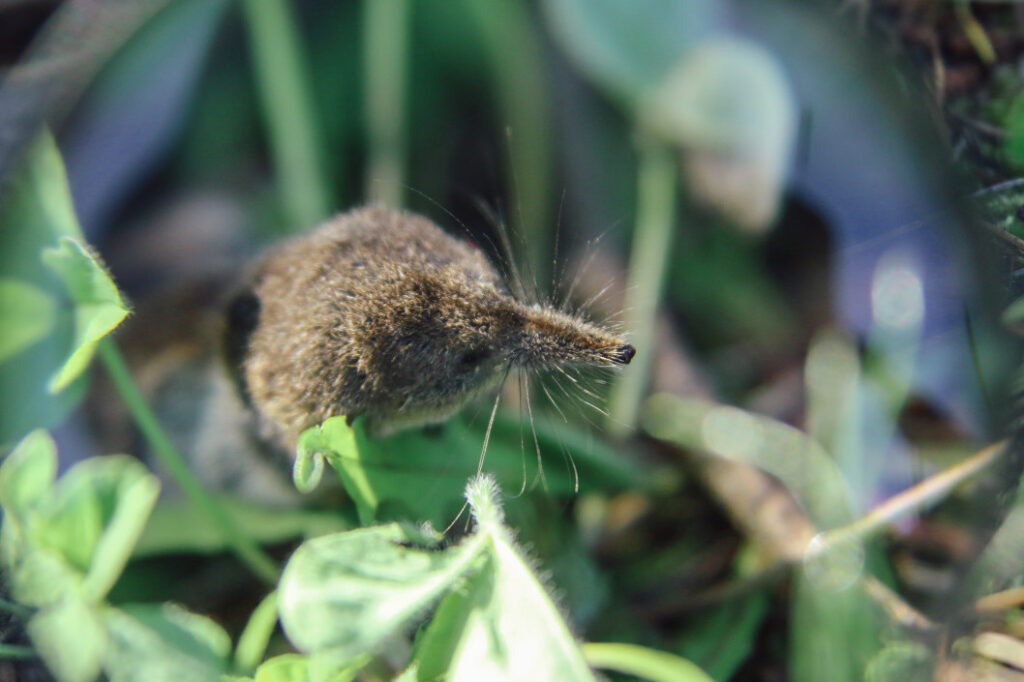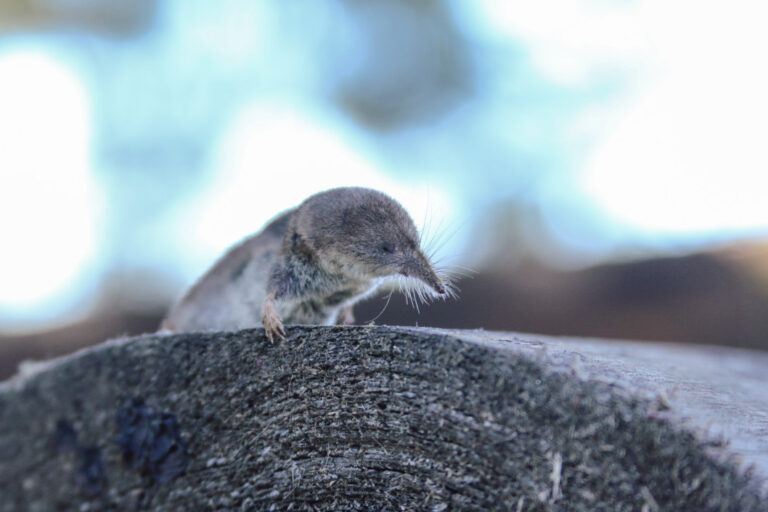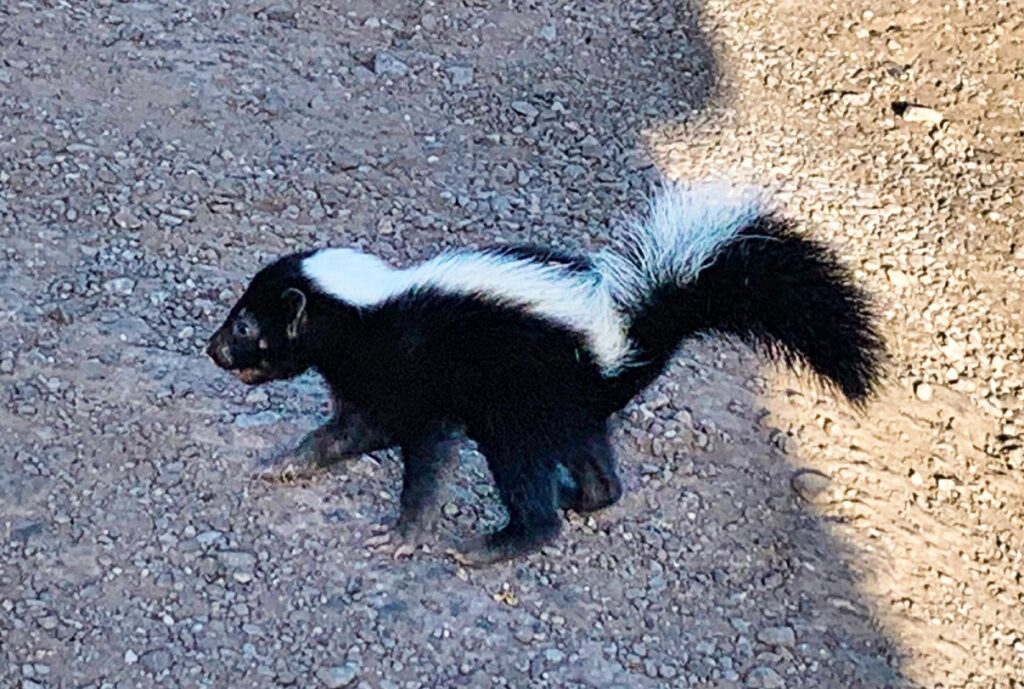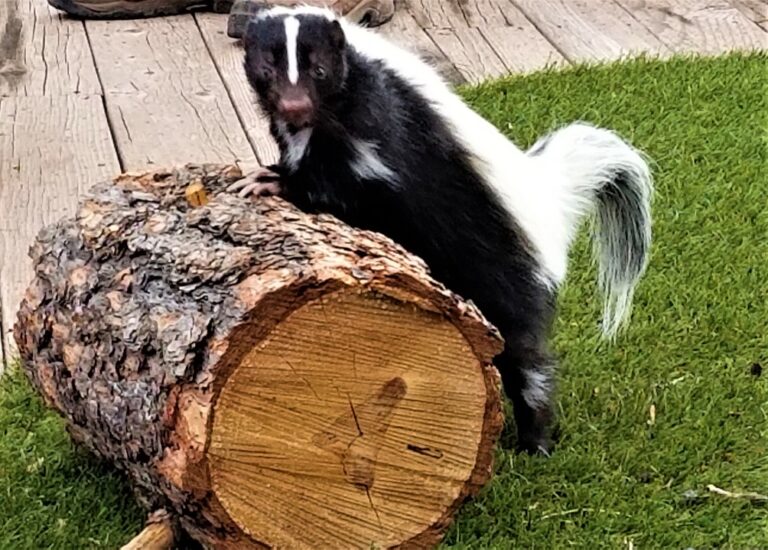 Are Shrews Bad For Your House?
Are Shrews Bad For Your House?
Shrews look like moles or mice due to their small eyes, elongated snout, and dense brown fur. However, they are not rodents as most people think. They are tiny mammals measuring only about 3.5 inches in length.
Despite their small size, they can be bad if they happen to take residence in your house.
Do Shrews Invade Houses?
Even though these tiny aggressive predators rarely invade houses, they still can, and when they do, they cause a big mess.
Shrews are very aggressive predators that can attack your pets. They also have a scent gland that produces an awful stench that makes everyone around uncomfortable.
Additionally, they can also contaminate food and water with their urine and feces. This is dangerous because they may expose you and other house occupants to deadly bacteria and parasites that cause deadly infections.
They also have a venomous bite that they use to subdue their prey. Although their venomous bite is not harmful to humans, their bite is very painful and could take time to heal if the proper medication is not administered.
Shrews have a voracious appetite and one can consume almost twice their body size in one sitting.
They primarily feed on insects but they have also been known to feed on birds, snakes ice, and sometimes, other shrews when an opportunity presents itself. They also feed on seeds, plant bulbs, vegetables, fruits, food remains, and all kinds of flowers. Their voracious appetite and vast diet make them a menace when they invade your home.
Shrews mostly enter a house through holes like the drainage pipes, attic screen, eaves, spaces between windows, and other places in the house where there are gaps.
When they invade your house, they will cause mayhem including emitting a pungent smell that makes the house a very uncomfortable place to live. Although they have very weak eyes, they have an incredible sense of smell and are also very fast and difficult to catch when found in the house.
They are also very aggressive and could bite you if you lack the skill and equipment needed to catch and eliminate them from your house.
Why Do Shrews Come In The House?
Shrews invade homes mainly to seek shelter and find food and water. They normally live outdoors where they forage for food in dense vegetation. However, when food is scarce or if their natural habitat is destroyed by humans or wildfire, they sometimes invade homes.
They mostly come in homes that have birds and pets because presents them an opportunity to find easy food and they can attack and feed on these pets.

How Can You Find Out If You Have Shrews?
When shrews invade your house, it will not take long before you notice their presence as is the case with other pests. This is because of their aggressive nature, voracious appetite, and poor eyesight. In fact, you will notice their presence almost immediately when they invade your house.
However, getting rid of these pests is not easy and requires the help of an expert.
Below are signs that indicate shrews have invaded your home:
Shrew droppings
One of the common signs that indicate that you have a shrew infestation is if you spot their feces in almost every corner of your house.
Shrew feces are about 2mm in diameter and about 6mm long. They are dark in color and corkscrew or curled in shape.
Like the animals themselves, shrew droppings usually have a distinctly unpleasant smell. Therefore, if you notice a pile of droppings in your house with a pungent smell, then that is a sign that shrews have invaded your house.
Unpleasant pungent smell
Another sign of shrew invasion in your house is a pungent smell that does not seem to go away. Shrews have a scent gland that produces an awful stench. They will leave their unpleasant smell in almost every corner of your house, making your home very uncomfortable.
Death or bad injuries on your pets
Shrews feed on birds and other small pets. So, if you notice that your pet is injured or has died and most body parts are missing, then that is a clear sign that shrews have invaded your house.
Shrews are also known to bite large pets such as dogs, causing life-threatening injuries. So, if you have noticed that your pet is suddenly injured and the wound keeps getting worse, then that is a sign that you have shrews in your home.
Family members getting sick
If you or someone in your family suddenly gets sick, then it could be because of food contamination caused by shrews. These pests usually contaminate food and in the process transmit deadly bacteria and parasites that cause illness.
Other signs of shrew invasion in your house include being bitten while sleeping and missing stored food.
Can Shrews Cause Damage To Your House?
In general, shrews do not cause property damage even though they are known to dig holes.
However, they cause other serious damages such as emitting an unpleasant smell, feeding on your pet and any stored food, biting people, and cause illness through food contamination.
If you believe you may have a shrew problem in your house, and need shrew removal and control services, feel free to give us a call.
Westchester Wildlife provides professional shrew trapping and removal services in Westchester, Dutchess, and Putnam Counties, NY, as well as in Fairfield County, CT.
 What Attracts Skunks To Your Yard At Night?
What Attracts Skunks To Your Yard At Night?
Keeping skunks away from your yard and home may feel like a daunting task. Thus, you need to figure out the things that could be attracting them to your yard at night in the first place.
Some of the things that can draw skunks to your property include food sources in your birdseed or feeder and garbage. In addition, these animals feed on earthworms, grubs, and other larvae that they may easily find in your yard’s soil during nightime. Also, they are always looking for an opportunity to dig under porches and crawl spaces.
Read on to learn more about skunk infestation and how to keep them from your yard.
Will Skunks Dig Holes In Your Yard At Night?
You are most likely spending a lot of time trying to make your yard look attractive. So it can be disappointing when you wake up and see unsightly holes in it. If you’ve experienced this, you might be wondering what’s digging your lawn.
Well, skunks are one of those wild animals that can dig holes in the yard at night.
Typically, these holes are shallow and have loosened soil. Skunks mainly dig in the ground to look for food or shelter. If you see huge grass chunks that look like they’ve been pulled from the dirt, it could be as a result of skunks eating grubs found underneath the ground.
These animals pull the grass to try and access the grubs that are on the dirt’s top layer. If there are many skunks in your yard, they could tear a huge portion over a single night to access grubs and other insects in the ground.
However, note that digging isn’t the only issue these animals cause. They can also damage your plants as they burrow looking for food. Plus, skunks can spray pets or people in the yard, causing a huge mess. Again, they might be carrying diseases, which could spread to the house occupants.
What Are Skunks Eating In Your Lawn?
Skunks dig the ground to feed on larvae of hornworms, cutworms, Japanese beetles, and other insects in the crops.
But, apart from insects, they also eat small games grasses, grains, leaves, garbage, and any fruit that they can reach.
Also, they can eat sweet corn but only the lower ears. So planting tall corn varieties could control this problem.

What Does It Look Like When A Skunk Digs In The Yard?
In fact, skunks are not the only animals that dig holes in the yard. Raccoons and rabbits are culprits too. So you need to identify the animal that’s doing the damage first before thinking of a prevention measure.
Skunks dig two holes, small holes they use to find food, and burrows they sleep and nest in. It’s usually advisable that you wait for a wildlife removal professional to tell you about the animal on your property rather than risking getting too close to the animal as it can defend itself.
But, there are some ways you can tell whether or not it’s a skunk’s burrow.
One is the size and location. Skunks will have a burrow entrance of about 8 inches wide and it’ll be so deep that you may not be able to see the nest.
Also, these animals mostly dig their holes under a sound and protective object. So you’ll mostly see holes on a large rock or fallen log which could be an outdoor structure like patio, deck, etc. in your yard.
Besides, look for the hair on the entrance. Skunks leave only a few hairs compared to raccoons.
What Does Skunk Lawn Damage Look Like?
Skunks have a stronger sense of smell than humans. They usually walk on the lawn with their noses close to the ground. Once they smell some grubs, they tear up that lawn apart and pull chunks of turf to search for food.
If you see small circular holes about 3 to 5 inches with loosened soil, you might be having a skunk problem.
How Do You Fix A Skunk Damaged Lawn?
In general, it can be hard to push back the pulled turf. And the animals might come back to check whether they exhausted the grubs.
However, you can try smoothing the destroyed area and overseed it. Additionally, make sure that you water the area as it can help the grass to regrow. You can also try to apply insecticide to the damaged areas, although this isn’t a quick-fix method.
How To Keep Skunks From Digging Up Your Lawn And Out Of Your Yard At Night?
The first thing is to make sure that you have a skunk problem. And this you can tell from the unpleasant smell that skunks release. Then use these tips:
Buy Sensor Lights
Skunks can’t stand bright lights as they are nocturnal. Therefore, installing a motion sensor light can help keep them away from your garden. This device startles most animals, and it is effective.
However, note that this isn’t a long-term solution. Eventually, skunks will realize that these lights cannot do anything.
Invest In A Scarecrow
Skunks fear people. So they’ll likely be terrified by a mechanical scarecrow. There are different scarecrows to choose from, including those that look like people or predators such as owls or wolves.
Use Household Scents
Skunks do not like strong scents like those of citrus, soap, or paprika. Spread them around your yard to keep this wildlife away. You can also try stronger odors like detergents and the smell of mothballs.
Spray Predator Urine
Dog or coyote urine can help keep skunks from your lawn. You can spray it around your yard’s perimeter or purchase flakes dipped in coyote urine at the garden store.
Compost With Caution
Composting is good for the environment but it can attract skunks and other wild animals. So avoid putting fish, meat, or other tempting sources in the compost bin. Also, ensure that your garbage bins are properly sealed.
Remove Grubs From Grass
Skunks dig in yards trying to look for food. Since most yards have grubs, it’s no wonder many have skunks visiting them. Apply nematodes that eat grubs on your lawn. You can buy them from garden stores and apply during early spring or late summer.
However, if you need the help of an expert, call Westchester Wildlife today! We will effectively, safely, and humanely trap and remove nuisance skunks from your yard where they are not wanted!
